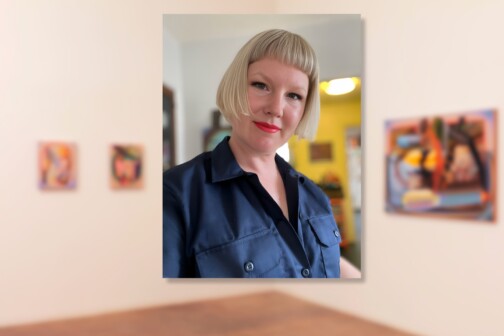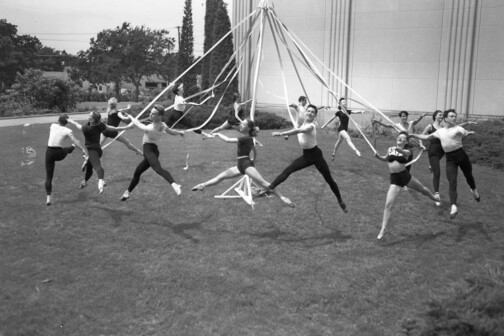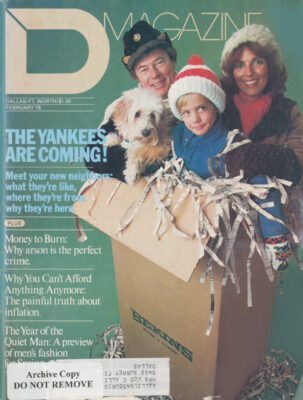I want to go somewhere. Every February I can remember I’ve wanted to go somewhere. Sitting in my grandmother’s mission rocker by the fireplace, a humming cat in my lap, I pore over travel ads – Sicily, $499; Majorca, $669; Rio, Rome, Amsterdam, Paris, Vienna, London, Bangkok. I make no distinctions. The main thing is to go, to shake off this cat, to leave this rocker, this fireplace, this town. What I really want. I guess, is to leave my skin, my self, just as when I walk down streets at night, I want to enter all the lighted windows and all the other lives.
Wanting’s cheap, but travel’s not. Maybe Emily Dickinson – “There is no frigate like a book” – hit the happiest compromise. Unfortunately, there is no frigate like a book, for the price. So once again, as on countless Februaries now fading into time, I embark. This year I am lucky. My companions are amusing, our itinerary and modes of travel varied – from Holland to Hungary by foot, clockwise around Sicily by bus, and into the heart of Alaska by helicopter, dogsled, and canoe.
A Time of Gifts, by Patrick Leigh Fermor (Harper & Row, $10.95).
In the first jaunt, we also travel backward through the years. In this travelautobiography, Patrick Leigh Fermor relives a 1200-mile walk lasting from Christmas 1933 to Easter 1935, the year and a half in which he also made the difficult passage from boy to man. Along the way, he describes a Europe no longer there, for he traveled up the Rhine and down the Danube the year Hitler came to power. (At the risk of sounding parochial I’ll call this journey a European version of John Graves’ travels on the Brazos in Goodbye to a River.)
At first I didn’t think I was going to like Leigh Fermor much. He was too cute a bad boy, too vital a young man, too knowledgeable and egotistical – a show-off. I felt a grudge against a man who so obviously casts himself as the hero. But before my opinion set, I encountered a character who decisively upstages his author, and I immediately forgave all. His name is Konrad, he turns up in a flophouse in Vienna, and he has learned all his English by reading Shakespeare. He talks like this: “Let us regain our fardels . . . Husband all lucre when you are in squandering vein, dear young … Do not dog bona robas.” In Konrad’s company, Leigh Fermor launches a series of doorto-door visits, making sketches of the unforgettable characters inhabiting Vienna in its pre-war decadence, and he uses the proceeds to set Konrad up as, of all things, a saccharin smuggler.
By contrast, the other most delightful character in the book, the Baron Pips Schey, inhabits a castle in Slovakia and is reading Proust when our naive narrator stumbles in unannounced. The Baron becomes a Proust himself for Leigh Fermor, as Europe in 1933 becomes Europe in 1900:
As he spoke, fashionable Europe at the turn of the century rose like an emanation of absurd and captivating splendor. Sovereigns and statesmen confabulated in a rose-colored, dove-grey mist . . . The scene was scattered with uniforms of scarlet and sky-blue; it was afloat, above all, with women of almost supernatural radiance.
Edward VII, Lily Langtry, Ellen Terry, Mrs. Asquith people the conversation of this aristocrat, whose life of movement and adventure includes marriages to a famous actress in Max Reinhardt’s Berlin theater and to a beautiful White Russian.
Both Konrad and Baron Pips introduce Leigh Fermor into society. Konrad into the Shakespearean world of variety and energy, the Baron into the Proustian world of discrimination and elegance. On both counts, an enviable debut.
Sicilian Carousel, by Lawrence Durrell (Viking, $10.95).
Not a debut but a reunion occurs in Sicilian Carousel, Lawrence Durrell’s fourth travel book and his first since 1957. The reunion, which has the mystical aura one associates with the author of The Alexandria Quartet, takes place on at least two levels. First, the journey around Sicily is a pilgrimage undertaken by Durrell to appease the spirit of his friend Marline, who lived on the largest Mediterranean island and who begged Durrell for years to visit her and to see its wonders. Now that Martine is dead of cancer, Durrell at last does her bidding. Yet Martine is vividly present – her blonde beauty, her laughter and wit, the intensity of her demands upon life. Born into the world of international affairs, she left that life to build a home and seek a truth in Sicily: “Martine, underneath the spoilt play-girl or fashion-plate, was hunting after some absolute belief in the rightness of Process,” a meaning in the cycle of life and death in nature. Somehow in the book she is herself not dead but a beneficent muse who rejoins Durrell and who becomes the genius of the island and of the book for him.
Quoting freely from her extraordinary letters about Sicily, he approaches the past of the place she loved and recaptures “the Tightness of Process” in human history as well as in nature. Martine knew and revered all of the layers of influence on the island – Sikels. Greeks. Romans. Arabs. Normans. Spaniards. Austrians. Durrell is finally converted to her faith in process in the cathedral at Syracuse, where an ancient Greek temple is
comfortably and capaciously cocooned in the Christian edifice … It was the history of the religious impulse in one vivid cross-section . . . Here we were standing on a spot which had been consecrated ground before the Greeks, then during the Greek reign, and finally for the Christians …. a real Ark of the human covenant. For the first time in my life I didn’t feel anti-Christian.
The present grows from the holy humus of the past.
But the heroine throughout is Sicily herself, her natural beauty, her fabled history . and behind her all of Mediterranean civilization. Next to going there myself, I’ll take Durrell’s book.
Coining into the Country, by John McPhee (Farrar, Straus & Giroux, $10.95).
Actually I wouldn’t want to go to Alaska – too cold – and maybe for that reason books about such places fascinate me. For years my favorite mid-winter reading was Peter Fruechen’s Book of the Eskimos, and 1 think my new favorite may well be John McPhee’s Coming into the Country. All good books of the genre are not just about places, but about people in places. Such books have the ingredients of novels – character, setting, situation – and an author who writes well doesn’t hurt. In all respects, McPhee’s book is superb.
Coming into the Country takes us into the country gradually. In the first section, we learn to trust our guide, McPhee himself, as he takes part in a canoe trip down the Salmon River into “America’s ultimate wilderness,” a land known only to forest Eskimos. McPhee experiences this country both practically and sensuously. He knows the temperature of the river water and he knows how it feels, and makes us believe him. Book II introduces us to internal Alaskan dissension. as McPhee goes along on a helicopter trip with a committee to select a site for a new state capital.
In the long third section which treats the people of the bush in the upper Yukon, the author subtly shows the conflict between preservers and promoters to be as basic as the differences in variegated human nature. McPhee presents a kaleidoscope of the true white citizens of Alaska, all living in or around the tiny settlement of Eagle through several winter months, and he speaks of Alaska through their various voices. Dick Cook, the best hunter in the area: “We’re not out here to rough it. We’re here to smooth it. Things are rough enough in town.” Joe Vogler, a part-time politician: “The United States has made a colony of Alaska … We are their oyster. They open uswhen they need us … They can take their Fourth of July and go to hell with it. They have their independence from Britain. We do not have our independence from them.” Ginny Gelvin, a housewife, closed in at home for six months of the year, whose weekly menusinclude spaghetti with mooseburger. moose meatloaf, Swiss moosesteak, and ground moose in Spanish rice: “Out here, anything can happen and it doesn’t bother you. We have our own power system, our own well … In town, I always feel insecure.” Donna Kneeland, a former stewardess: “I hope this doesn’t sound corny, but things are living and dying out here all the time. If I got appendicitis, I would just die.”
Finally there is the voice of McPhee himself, like Durrell in Sicily, at length converted to the genius of the place:
The grizzly was tender with youth and from a winter in the den. More flavorful than any wild meat I have eaten, it expanded my life list – muskrat, weasel, deer, moose, musk-ox, Dall sheep, whale, lion, coach whip, rattlesnake . . . grizzly. And now a difference overcame me with regard to bears. In strange communion, I had chewed the flag, consumed the symbol of the total wild, and. from that meal forward, if a bear should ever wish to reciprocate, it would only be what I deserve.
With this testament of Alaskan ecology, that life and death are not a duality but a unity and that “Eat and be eaten” is the credo, I have come a long way from my mission rocker. Far enough for one February.
Related Articles

Visual Arts
Raychael Stine’s Technicolor Return to Dallas
The painter's exhibition at Cris Worley Fine Arts is a reflection of her training at UTD—and of Dallas' golden period of art.
By Richard Patterson

Dallas History
Tales from the Dallas History Archives: Scenes from 1949, When the Mob Ruled Dallas
In 1949, streetcars still roamed Dallas' streets, the Adolphus Hotel towered over its neighbors downtown, the State Fair was still segregated, and Benny Binion wanted his money.

Business
Executive Travel: Beverly Hills, California
The Maybourne Beverly Hills is a luxurious home base to explore the best of Los Angeles, a frequent destination of Alto CEO Will Coleman.
By Will Maddox


